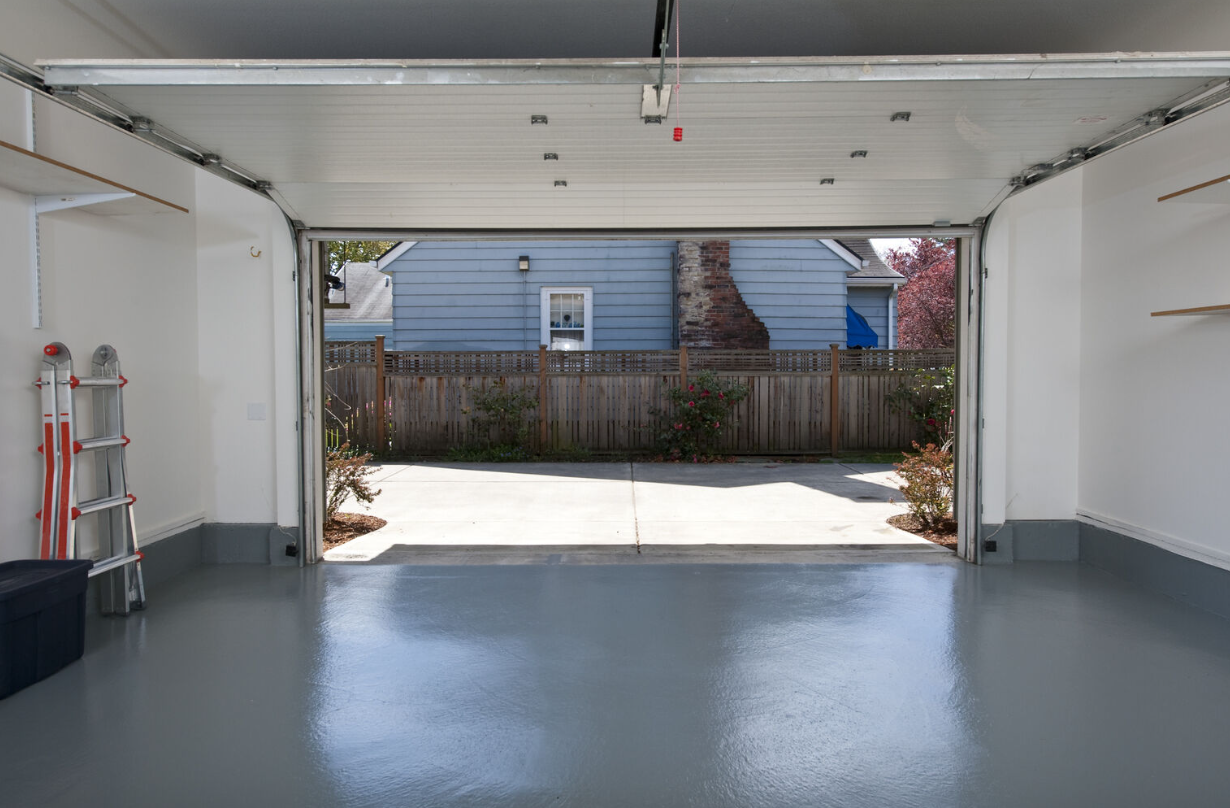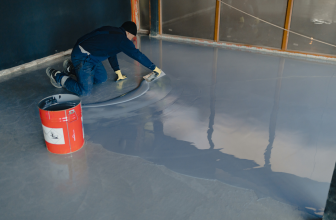
As winter approaches, the cold temperatures and wet conditions can cause many problems in the home, including in your garage. Keeping your garage floor dry during winter can be a difficult task, but it doesn’t have to be impossible. The key is to understand some of the best practices available for drying out a garage floor and putting them into action as soon as possible. By taking a few simple steps now, you can ensure that your garage floor remains clean and dry throughout the entire winter season.
Table of Contents
Introduction: Reason for Keeping Garage Dry
The winter months can bring a lot of problems for homeowners, especially when it comes to moisture and water damage in garages. While there are many ways to keep the garage floor dry on a regular basis, cold weather can make this task more difficult. Fortunately, with some careful planning and preventative measures, homeowners can ensure that their garages remain dry all throughout the winter season.
One of the most important reasons for keeping a garage floor dry is to prevent water damage from occurring. Moisture buildup in an enclosed area like a garage can cause wood rot, rusting metal surfaces, and other potential hazards if left unchecked. Additionally, mold and mildew caused by excessive moisture can be hazardous to health.
How to Keep Garage Floor Dry in Winter
There are a few simple steps you can follow to ensure that you’re keeping your garage floor dry this winter season.
Step 1: Weatherproof Doors/Windows
As winter approaches, it’s important to make sure your garage is prepared for the cold weather. Having a weatherproof door and windows is an essential part of keeping your garage dry and free from moisture during the winter months. Here are some tips on how to keep your garage floor dry in winter by weatherproofing your doors and windows.
First, check the seals around all entry points into the garage like doors and windows for any cracks or gaps that could be letting in moisture. If you find any, replace or reseal them right away with durable materials like silicone caulk or weather stripping. Also, inspect the frames of each window and door; if they’re old or rotting, it may be time to invest in replacements so they can better withstand rain, snow, and windy conditions.
Step 2: Check for Cracks & Holes
If you discover any cracks or holes in your garage floor, you need to address them immediately. The purpose of this step is to identify and fix any water leaks that could be coming from outside of the garage and prevent excess moisture from entering during the winter months. Begin by inspecting all areas of your garage floor for signs of cracking or other damage. If you notice any breaks in the concrete, use a masonry sealer to help fill in and repair the area, followed by waterproofing paint or coating. If there are large holes or noticeable gaps between sections, use a quick-drying concrete mix along with wire mesh reinforcement to fill in the gaps and patch up any significant damage before applying a sealant. Once these steps are complete, you’ll have an effective barrier that will keep moisture out while also providing durability against harsh weather conditions throughout the wintertime.
Step 3: Install Waterproof Flooring
The third step in keeping your garage floor dry during the winter is to install waterproof flooring. This will help prevent moisture from seeping in and ruining the surface of the floor. Waterproof floors are designed to be long-lasting, as well as easy to clean and maintain. It is important to choose a material that can withstand extreme temperatures, high humidity levels, and regular foot traffic. Popular options for waterproof flooring include vinyl plank or tile, rubber interlocking tiles, or epoxy coating.
Having the right garage floor coating is key to keeping your garage dry in the winter months. Epoxy floor coating is an ideal choice for waterproofing your garage floor and shielding it from moisture, mold, and mildew. This type of coating provides a durable protective layer that will last through heavy foot traffic and harsh weather conditions.
Step 4: Use Dehumidifier or Heater
When the temperatures drop, it’s important to keep your garage floor dry both for comfort and safety. Step four is ensuring a dry garage floor using dehumidifiers or heaters as needed. Dehumidifiers will remove moisture from the air, reducing condensation on walls and floors. Heaters can be used to raise the temperature of your garage slightly above freezing, which can reduce condensation levels. It’s important to note that these measures should not be used if you don’t have adequate ventilation in your garage, as this could create a hazardous situation with carbon monoxide poisoning. Additionally, make sure your heating system is well-maintained before turning it on, and inspect any cords regularly for fraying or exposed wires. If you are not comfortable operating a heater in your garage, consider hiring an electrician or HVAC technician to do so safely.
Step 5: Monitor Humidity Levels Regularly
In order to ensure a dry garage floor during the winter months, monitoring humidity levels is essential. Humidity in an enclosed space such as a garage can quickly build up and increase the likelihood of condensation forming on the floor. To keep this from happening, it is important to monitor humidity levels regularly throughout the winter season.
One way to do this is by investing in a hygrometer, which provides an accurate measurement of moisture content in the air. Place the hygrometer near your garage door or window to get an accurate reading and use a dehumidifier if necessary. Additionally, make sure any windows are closed tightly and that there are no gaps around doors that might allow humid outside air into your garage.
Conclusion
In conclusion, keeping a garage floor dry during the winter months can be difficult. However, by following the steps outlined in this blog post, you can ensure that your garage floor stays dry all season long. By taking preventive measures such as clearing snow and ice from your driveway and using a dehumidifier, you can keep your garage floor dry and avoid any damage to your belongings or vehicles.








